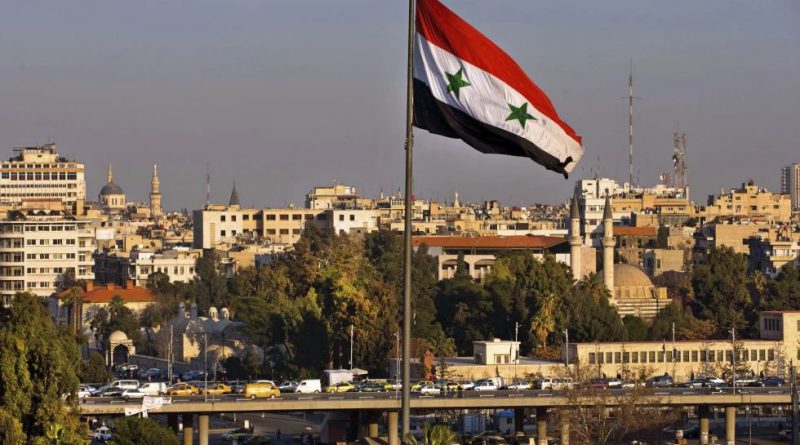UN warns that 90% of Syrians are below the poverty line, while millions face cuts in food aid
United Nations (AP) — The U.N. humanitarian chief warned Thursday that the 12-year conflict in Syria has pushed 90% of its population below the poverty line, and that millions face cuts in food aid next month because of a funding shortfall.
Martin Griffiths said that the $5.4 billion U.N. humanitarian appeal for Syria – the world’s largest – is only 12% funded, meaning that emergency food aid for millions of Syrians could be cut by 40% in July.
Griffiths delivered the grim news to the U.N. Security Council along with an appeal to members to renew the authorization for the delivery of aid to the country’s rebel-held northwest from Turkey, which expires July 10.
But Russia’s U.N. ambassador, whose country is Syria’s most important ally, called the cross-border aid deliveries “a zero-sum game” that is undermining Syria’s sovereignty, discriminating against government-controlled territory, and fueling illegal armed groups including “terrorists in Idlib.”
Syria’s uprising-turned conflict, now in its 13th year, has killed nearly half a million people and displaced half of its prewar population of 23 million. A deadly 7.8 magnitude earthquake rocked large swaths of Syria in February, further compounding its misery.
Griffiths, the undersecretary-general for humanitarian affairs who returned Wednesday from Damascus, said the Syrian people are facing “profound humanitarian challenges.” He said they were gathering Thursday on the Muslim holy day Eid al-Adha “with less food on their plates, little fuel in their stoves, and limited water in their homes” and their hardship comes at a time when the U.N. and its humanitarian partners have limited means to help.
Russia’s Ambassador Vassily Nebenzia said the emergency humanitarian appeal for $397 million to help earthquake victims was funded in the first months, but the overall U.N. appeal for Syria was only 12% funded near the end of June. And he accused the U.S. and its allies of spending far more on weapons for Ukraine than the $55 billion the U.N. is seeking for global humanitarian needs this year, saying “this lays out Western priorities very clearly.”
Britain’s U.N. Ambassador Barbara Woodward retorted that the U.K.’s $190 million pledge on June 15 brought their contribution to Syria to over $4.8 billion to date and said: “I look forward to Russia announcing its contribution in due course following the recent announcement that Russia spends $2 billion a year on the Wagner Group.”
Russia’s President Vladimir Putin said Tuesday, after the founder of the Wagner mercenary group, Yevgeny Prigozhin, and his forces staged a revolt inside Russia, that Wagner and its founder had received almost $2 billion from the Russian government in the past year.
Woodward, who visited the Turkish-Syria border earlier this month, echoed Secretary-General Antonio Guterres’ call for a 12-month extension of the authorization for cross-border aid deliveries to ensure humanitarian access to 4.1 million people in Syria’s northwest.
In January, the council approved a resolution extending humanitarian aid deliveries to Idlib for six months until July 10 as Russia demanded. Many of the people sheltering in the area have been internally displaced by the conflict. The resolution allowed for aid deliveries to continue through the Bab al-Hawa crossing, but after the earthquake Syria’s President Bashar Assad allowed aid to go through two additional crossings at Bab al-Salameh and al-Rai.
U.S. deputy ambassador Jeffrey DeLaurentis, who said the United States made its largest commitment to Syria of $920 million on June 15, called it “essential” to keep all three crossings open for 12 months. He cited Guterres’ latest report which said anything less would be inadequate to meet humanitarian needs in the northwest which have never been greater. The U.N. chief called it “a moral and humanitarian imperative.”
Russia and Syria have pressed for aid deliveries to the northwest across conflict lines and U.N. aid chief Griffiths said a 10-truck convoy from Aleppo recently traveled from Aleppo to Idlib safely, with aid for some 22,000 people. But Russia’s Nebenzia dismissed it as the only cross-line delivery in the last six months “clearly timed to coincide with today’s meeting.”
“Do you seriously expect us to consider the situation with cross-line convoys to be satisfactory after this?,” he asked.
Griffiths said expanding early recovery programs – another key Syrian and Russian demand – “is the humanitarian community’s best chance to support the future of the Syrian people.”
He urged a stronger international consensus on the importance of these programs and a relaxation of rules to allow not only vocational training but mentoring for young people, construction of irrigation systems without qualifying them as “development” projects, and the opening of schools regardless of whether they are described as “rehabilitated” or “reconstructed.”



